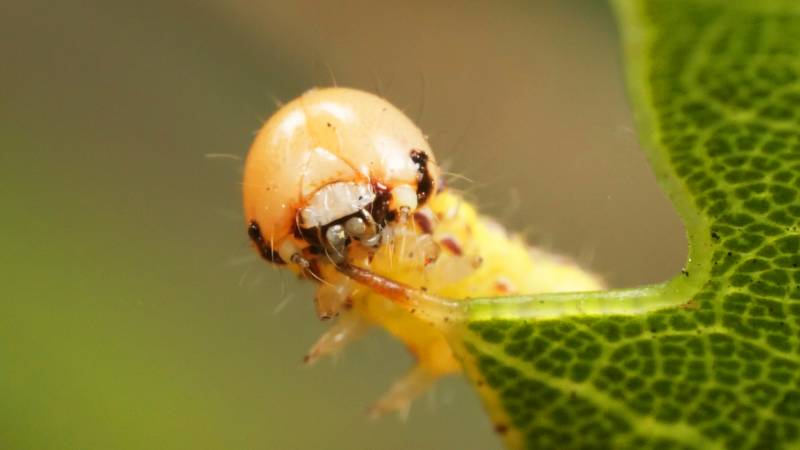Deep Look, KQED’s award-winning science and nature series has won a Society of Professional Journalists(SPJ) Northern California (NorCal) Excellence in Journalism Award for Science, Environment and Health Reporting in the television/video category for videos on kidnapper ants, zombie flies, webspinners, tsetse flies and California floater mussels.
In addition, this winter Deep Look is kicking off its eighth season with an extraordinary mix of short videos featuring a new batch of unusual small animals, including caterpillars that eat oak leaves; persimilis mites that rain down from drones; and beach hoppers that devour seaweed.
“We are thrilled to have our work recognized with a SPJ NorCal award," says Craig Rosa, Deep Look’s series producer. "We are also excited for folks to see our latest season. Our team has done a stellar job finding new stories to film while staying safe under difficult pandemic conditions."
Launched in October 2014, the series is presented on the PBS Digital Studios YouTube network and has more than 1.65 million subscribers and close to 280 million lifetime views. It is KQED’s most successful web video production. Deep Look’s videos are shot in ultra-HD (4K) and use macro cinematography and video microscopy to reveal small, hidden worlds in nature that humans rarely get to see or experience.
Deep Look releases its videos about twice a month and will produce 20 new videos this year. Below are the first six videos of the new season.
Jan 12 - These Silk-Swinging Caterpillars Will Ruin Your Picnic -- California oak moth caterpillars eat all the leaves on an oak. Then they rappel down on a strand of silk, twirling and swinging. If you were enjoying the shade, good luck getting out of their way. For the oak, the caterpillars are a bigger deal –– will the tree survive?
Jan 26 - These Mites Rain Down To Save Your Strawberries -- Two tiny mites duke it out on strawberry plants throughout California. One is a spider mite that sucks the juices out of the delicious crop and destroys it. The other, persimilis, is a crafty predator that growers drop by the thousands from high-tech drones to protect their fields.
Feb 9 - These Acrobatic Beach Hoppers Shred All Night Long (Video Link Embargoed until Feb 9, 6am PST) -- At night, these tiny crustaceans become a beach-cleaning crew, eating so much decaying seaweed that in the morning all that’s left is an outline in the sand where the kelp used to lie.
Feb 23 - Firebrats -- What is that bizarre fish-shaped insect running in your sink? With three long filaments poking out their back, no wings, and offspring that look like tiny adults, firebrats and silverfish have something to teach us about what it means to be an insect.
March 9 - Aphids -- The bane of gardeners and farmers alike, aphids show up suddenly and take over, sucking the sap out of plants’ leaves. Female aphids clone themselves and give birth to live babies that are already pregnant with the next generation. Oh, and they pay ants off for protection. But don’t worry, aphids do have a few choice enemies.
March 23 - Mexican Jumping Bean -- Often sold as novelty items, these beans are actually the seed capsules of a shrub that has been taken over by the tiny larvae of a gray moth. As they grow, the larvae shimmy around inside the capsule to stay in the shade and keep cool in the hot Mexican forests where they live.
